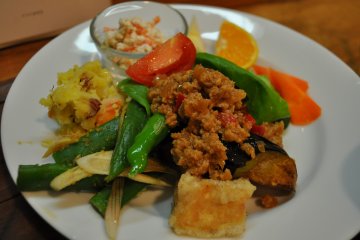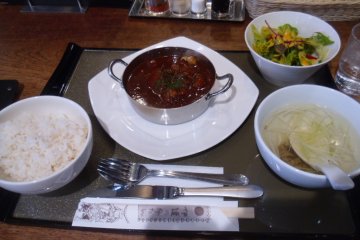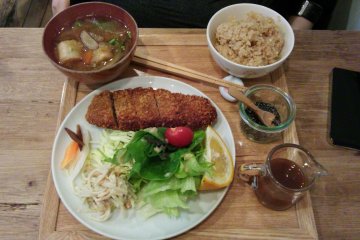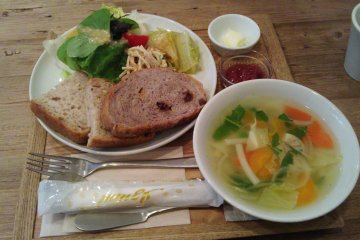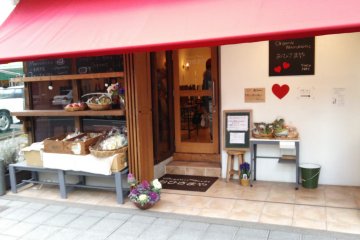Japan is renowned for its food: the weird, the wonderful, and the expensive. High-quality fruit, sometimes in novel shapes, has even been featured on the news. Even in supermarkets, there's hardly a blemish to be seen on any fresh produce. I've been told that Japanese cooking uses vegetables more than a lot of other countries' cuisine. I don't know how true this is, but I have noticed something: no matter how many vegetables may or may not be used, they are always accompanied by meat or fish. Vegetarians, not to mention vegans, struggle to eat out in Japan.
Sadly, Sendai isn't an exception to the rule, not really. There are just a few places like Pan Flote that cater to or are happy to accommodate vegetarians (that list is much shorter for vegans). Ohisamaya has more reasonable opening hours than some, and is located within a short walk from Sendai Station. So I checked it out.
Ohisamaya styles itself as “macrobiotic”, a food movement that is said to have started in Japan which shares many similarities with vegetarianism, although it doesn't automatically rule out fish. The menu here though is almost vegan, bar the occasional cheesecake. The cafe is also organic, and various foodstuffs can be bought in the adjoining shop (which has shorter opening hours). The varying selection of cakes, made daily can be eaten in the cafe or purchased as take-out. Every thousand yen spent in the cafe earns you a stamp, and a full stamp book can be exchanged for a voucher to spend in the shop. So if you find yourself eating here a lot you can reap the benefits!
For such a small, somewhat niche cafe, the menu isn't as limited as you might expect. There are more options in the evening in the form of set meals, such as the “gluten katsu” ordered by my (vegetarian) friend. It was so delicious that she'd been waiting to come back so she could order it again. It certainly looked it, and the soup-salad set with bread that I ordered did too. My meal was a bit lacking in protein, so I finished it off with a piece of the non-vegan cheesecake. I couldn't have been happier with my choice though – it came with fresh, homemade bread and strawberry jam that similarly looked homemade. The soup was definitely Japanese-style – a clear, flavored liquid with pieces of vegetables in it rather than a thick broth – but nevertheless pleasant. The salad tasted really fresh, with a perfectly-judged amount of dressing that wasn't too thick or sweet.
The whole place is deceptively simple; there aren't any decorations as such, just wooden tables and white walls, but behind the counter are shelves full of books and ingredients. If you're lucky, you'll get to see (and smell) some fresh bread, a rare occurrence in Japan. But bread doesn't get made without effort, and neither does the rest of the menu. This effort is reflected in the price, which is actually quite similar to other popular cafes, and here you're guaranteed good quality, healthy food. There's a reason it's still going after over 20 years.
Don't be put off by labels like “macrobiotic” and “vegetarian” - this cafe is for anyone. It makes a refreshing change from ramen and rice bowls, and it really is delicious.



